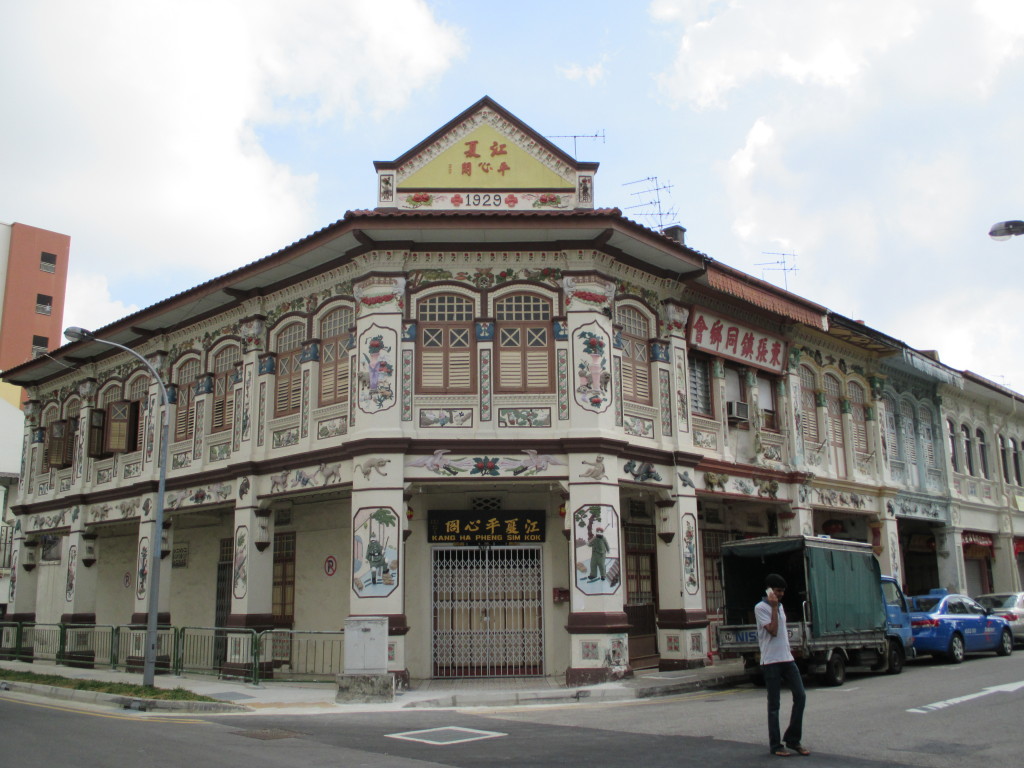Published on May 1, 2015 in the Singapore American Newspaper:
Etiquette can be tough to master at home, let alone abroad. It seems like there’s always something new to learn. For example, I only just found out that if a Singaporean woman introduces herself as Madame Lim, she is using her maiden name, as opposed to when she uses Mrs. Hoh, which is her married name.
As a tourist in Singapore, you’ll likely be forgiven your faux-pas, but if you’re an expat doing business here, it’s a good idea to adapt to the work environment. As the saying goes, “Think global. Act local.” When you put in the effort to understand local expectations, it not only shows your clients that you respect them, but will also enable you to adjust your marketing strategy or meeting style for a greater chance of success.
Punctuality is a virtue so arrive to meetings on time. Introductions are almost always in order of age. Ethnic Chinese generally use a very light, extended handshake feeling the traditional Western bone-crushing grip is offensive. Chinese men and women may shake hands, but the woman must always extend her hand first. Older ethnic Malayasian men may only shake the hand of another man. Younger Malays sometimes shake hands with foreign women, but it is more appropriate to bow the head which is how two Malay women meet. Indians may shake hands with members of the same sex and will smile and nod when being introduced to somebody of the opposite sex. Hugs are rare in the US in business, but pretty much non-existent here even between friends. Don’t back slap or high five either. In general, folks here simply don’t like to be touched.
If you’re introducing two people, state the name of the more senior or more important person first. When meeting with a Singaporean counterpart, wait for him or her to introduce you to the rest of the team. Avoid using first names until your Singapore counterpart suggests it. This is especially important when dealing with older people. In fact, most Chinese counterparts will introduce you by your last name.
Resist the temptation to give compliments. Giving or receiving compliments is not common in Chinese culture. In fact, if you do give one, your counterpart will probably respond with the words, “Not at all” or “It is nothing” rather than “Thank you.” Conversely, Singaporeans think nothing of asking highly personal questions that Westerners considered inappropriate.

Kang Ha Pheng Sim Kok Building
Here as in Japan, you should use both hands to pass your business card with your name facing the person. Study the card. Take the time to ask how to pronounce their name properly. Leave the card on the table horizontally facing you during the meeting. This is a sign of respect. Whatever you do, don’t put it in your back pocket. Never deal out your own cards like a deck of cards.
In Chinese culture, it’s important for people to see the exit. Since 70% of Singaporeans are of Chinese descent, it’s best you sit with your back to the door. Generally, you will be told where to sit as there is a strict hierarchy so simply wait to be told where to sit and you’ll be okay.
Appropriate dress depends on the industry in which you’re working. Finance jobs, for example, generally demand a full suit and tie whereas many other industries in Singapore are much more casual. Try to gear your style to the client’s.
Everybody likes to feel as if they’ve won, but this is particularly important in the Chinese culture. If you’re selling something, for example, give an initial price with a room for negotiation.
Most cultures consider it polite to offer a visiting client or business partner something to drink upon their arrival. In the US and the UK, we expect glasses of water to at least be chilled or better yet have ice. Room temperature water smacks of a half-hearted attempt to provide a nice drink. But in Malaysia, Singapore and a few other Southeast Asian countries, it’s a nice gesture to clarify whether they would prefer warm or cold water. The belief that drinking too much cold water will make you sick is still a fairly common one so if you can handle warm water, it’s probably best to just sip and make do.
Once refreshments are handled, it’s time to get down to business by…not talking about business right away. Relationships, rather than strict economics, rule business partnerships in Asia and so the straightforwardness that Americans value so highly can strike the wrong tone. We think we’re being honest and not wasting time, but the chunk of the business meeting you devote to small talk can often be the most productive part of the rendezvous. However, no matter how well that conversation goes, it can still be difficult to determine whether or not you have successfully made your case. In the same way that Singaporeans value relationships, they are also often reluctant to say “no” outright. Part of my job requires me to pitch our consulting services one-on-one to potential clients and I can never tell if I’ve made a sale until the moment they sign up. Some of the best conversations I’ve had have led nowhere, while conversations I wrote off as a wash led to that person buying a package several weeks later.
Singaporeans often put more stock in facial expression, tone of voice and posture than in the spoken word. They pay as much attention to what isn’t said to what is said. Silence is actually quite important in negotiation. By pausing before you answer, you signal that you’ve really stopped to think about what the other person said and how you want to respond. This is a symbol of respect while responding quickly is seen as rude behavior. Speaking loudly is also a sign of rudeness. Most locals speak softly and sometimes smile to avoid embarrassment and not necessarily because they think what you said is all that funny. If you’ve been getting a lot of smiles in your meetings, it may not be because you’re the stand-up comedian you think you are!
Something else rude? Moving something with your shoe or pointing the soles of your shoes towards somebody so don’t prop your feet up on the table. Things like pointing and whistling are totally unacceptable. Shrugging and winking are confusing. Never write anything in red ink.
If you’ve lived here for more than ten minutes, you know that food is a big deal in Singapore. Business lunches can be super fancy or a quick meal at a hawker center. If you’re hosting, remember that Muslims don’t eat pork and devout Muslims should be taken to a halal restaurant. Hindus don’t eat beef. And there are no three martini lunches in Singapore. In general, drinking during the day is frowned upon, but drinking at night is acceptable and often an important part of bonding with clients.
Another thing to be mindful of is how you speak about Singapore. While Singaporeans themselves will be the first to admit they love to complain, that doesn’t give you equal rights to whine. Think about how you would feel back home if an expat complained about life in your city. Even if you agreed with their gripes, you would likely still feel a pang of defensive patriotism. Keep your bellyaching about the restaurant service or the weather to your own circle of friends and out of any professional relationships.
At the end of the meeting, guests should be walked to the elevator. High-ranking guests should be walked to the car. When a Singaporean offers to send you to the airport, they are literally offering to take you or collect you themselves.
Nevertheless, being polite on local terms doesn’t mean relinquishing all the traits that have made you successful back home. I begin my workshops by stating outright that I’m a loud American, which means I’m going to make them talk in class, urge them to work in groups and expect them to ask questions. The belligerent interactivity is often novel for adults who were taught in the more restrained Singapore style. When mixed with elements they’re to which they are more accustomed, communication not only becomes easy, it becomes enjoyable.
And don’t forget the number one rule of doing business in other countries: if you accidentally offend, simply apologize and take the lesson with you.

